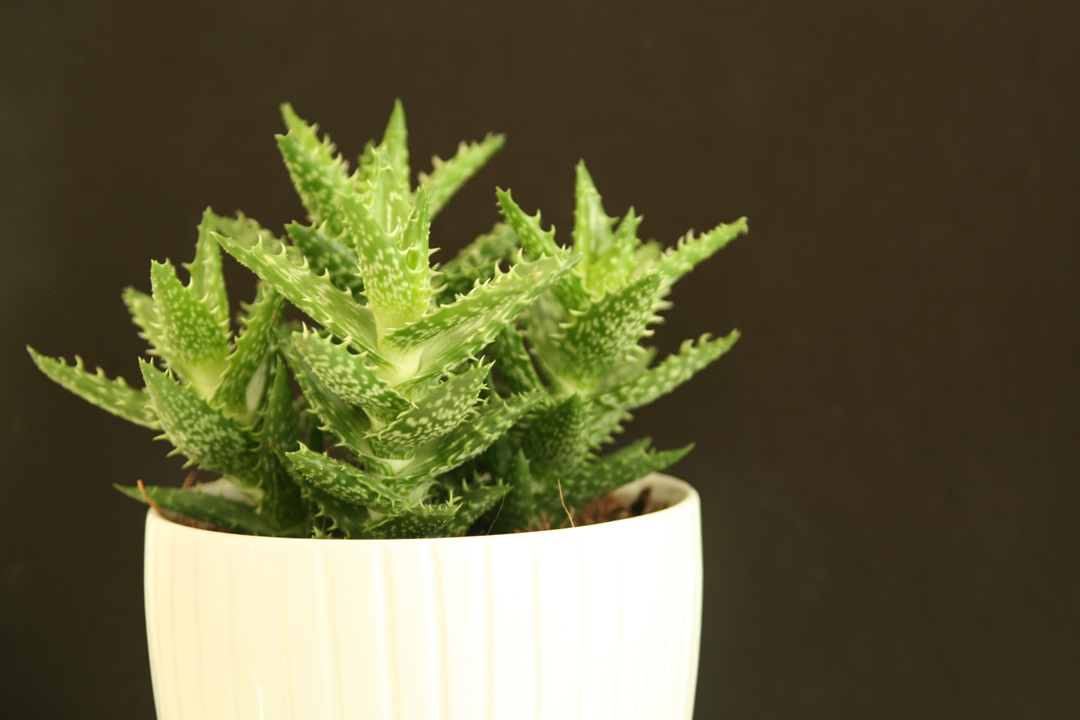
Reducing Food Waste in Foodservice
October 16, 2018 by Doreen Garelick, Dietetic Intern
Our intern Doreen attended a food waste summit for restaurants and compiled these tips to help food service operators redirect…
Nutrition 101
August 15, 2014

Aloe vera water is cropping up on store shelves everywhere, but is drinking Aloe vera juice safe?
Herbal supplements and plant products are commonly added to foods and beverages, accompanied by claims of increased nutrient content or advertised as a natural remedy.
A few years ago, acai berries became well known for their antioxidant and cardio-protective properties. More recently, chia seeds came onto the scene, promoted as a healthy source of fiber, good fat and protein to promote fullness and possibly help control blood sugar.
However, not all plant products or herbal supplements are safe. One of the most infamous herbal supplements is ephedra, an incredibly popular weight loss aid that was ultimately banned by the FDA in 2004 after numerous ephedra-related deaths were reported.
Before incorporating a supplement into your diet, it is important to do your research -- especially since supplements are largely unregulated by the FDA. Often, supplement companies try to capture and amplify the health benefits of a trendy ingredient in a supplement from. However, sufficient scientific evidence may not exist at that time to support the claims on the bottle.
While Aloe vera has been used safely as a standard topical cream, gel or key HBA ingredient for decades, now you’re likely to see it sold as juice in the grocery store. If you search the Web for Aloe vera juice benefits, you’ll come across health claims ranging from weight loss, low cholesterol, detoxification and improved digestion to immunity, healthy skin and hair, hydration and blood sugar control.
However, studies have not supported all of these claims. In fact, evaluation of long-term use has shown that ingesting the plant may actually be harmful. For example, Aloe vera used as a digestion promoter has been shown to increase losses of potassium (critical to muscle control) so much that it reduces intestinal wall function over time.
Research has highlighted other dangers of taking Aloe vera as well. In a study including rats and mice given oral Aloe vera gel, latex and whole leaf extract, rats experienced dehydration and diarrhea. And in the case of those given whole leaf extract, carcinogenic activity was observed in intestinal cells.
Despite this research, it is not yet clear which part of the plant or what dosage may cause these effects in the human body. In fact, documentation reveals that some patients have taken Aloe vera in liquid or capsule form regularly without harm. But with research pointing to some more troubling possible effects, it’s best to proceed with caution for now.
If you pass Aloe vera juice stocked on the grocery shelves or see links that tout the benefits of this plant while perusing health food sites, just keep in mind that there is not currently enough evidence to support using aloe vera safely as a supplement. Until more long-term studies are done, it’s best to get your nutrition from tried-and-true fresh fruits and vegetables, whole grains, lean proteins and healthy unsaturated fats: All of these are backed up by a ton of solid evidence, giving you the go-ahead to stock up and enjoy!
Do you drink aloe vera or are you concerned about the lack of research? Share your thoughts in the comments below.

October 16, 2018 by Doreen Garelick, Dietetic Intern
Our intern Doreen attended a food waste summit for restaurants and compiled these tips to help food service operators redirect food waste from landfills.
Nutrition 101

Nutrition 101
September 26, 2018 by Doreen Garelick, Dietetic Intern
Ever notice headlines about rapid weightloss? Dietetic Intern Doreen Garelick looks deeper into a recent eye-catching headline to see if there's any truth behind it.
Connect
 Follow us on Twitter
Follow us on Twitter Friend us on Facebook
Friend us on Facebook Follow us on Pinterest
Follow us on Pinterest Follow us on Instagram
Follow us on Instagram Read our Blog
Read our Blog Watch videos on YouTube
Watch videos on YouTube Watch videos on Vimeo
Watch videos on Vimeo Connect with us on Linkedin
Connect with us on Linkedin Find us on Foursquare
Find us on Foursquare
Tweets by @SPEcertifiedBlog Search
Categories
SPE Certified Newsletter
Sign up for news on the latest SPE-certified venues, events and SPE updates.
We will never share your personal information with a third party.